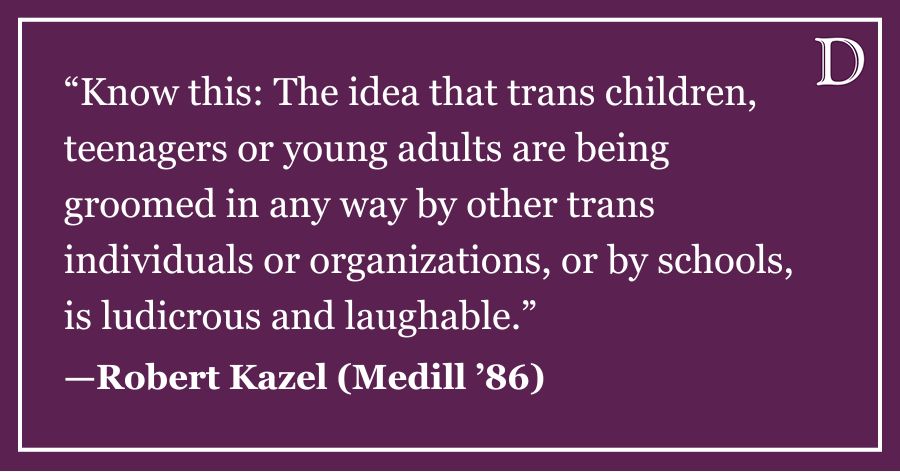Homecoming 2013 was unforgettable. Wildcat pride was rampant from the parade Friday, to the Lakefill on Saturday morning with “College GameDay,” to the bleachers at the Ohio State game Saturday night. Northwestern students embraced our reputation as “Nerdwestern,” with signs at “GameDay” including messages like “Will this be on the midterm?” and “I should be studying right now.” Naturally, once the weekend culminated, we had to get back to hitting the books, hard.
The post-Homecoming homework hurricane hit us with a bang on Sunday. Everywhere I looked, people had their noses buried in textbooks, pausing only to scarf down some food or list what they had to do to friends. I overheard countless people listing their responsibilities to anyone within earshot without bothering to listen to others’ responses.
Everyone was overwhelmed with the amount of work they had left to do on Sunday. So why do so many people feel the need to make it into a competition of who has the most work?
Competition is inherent to so many parts of our culture. We tend to quantify aspects of life, which makes it easier to compare ourselves to others. Facebook likes correspond to how many people you know, GPA to how smart you are, the number of clubs you’re in to how involved you are, etc. But in the end, where do these numbers get you?
It is important to know a certain number of people and to have a good GPA and to be involved in organizations, but these numbers don’t give the full picture of what life is about. What matters in the end is whether you have friends you can rely on, whether you can function in the real world with your 4.0 GPA and whether you are passionate about the organizations you are in.
Even if you have more work than other people, you don’t need to tell them that. We shouldn’t be trying to prove to people that we are more involved or are taking more classes or are generally busier than someone else is, especially if this person is your friend.
There are several reasons your friends could be sharing their to-do lists with you. Your first instinct may be to politely listen until they’re finished and then spew out everything you have to do in response without providing feedback.
But they may be talking to you in an effort to ease the weight of anxiety on their chest about whether they’ll finish everything in time.
We all know that feeling: it’s a heavy weight in your stomach that no amount of coffee or water can help you get rid of. It’s a cross between butterflies in your stomach and a knot in your throat. That moment when you realize you have so much to do that there’s a 98 percent chance that you’ll be up all night finishing everything and a chance that you’ll stay up all night and not finish anyway.
My roommate was up all of Sunday night reading, and I went downstairs Monday morning to find her still hard at work. But she still took a minute last night to ask me how I was doing and listened when I told her all the assignments I had to finish. She did not try to butt in with the work she had to do, even though she was reading long after I finished my problem sets. She gave me feedback on how I could finish everything in time, and then we talked about what she had to do and joked for a little while. Those few minutes helped ease the nervous feeling I had and made getting down to work again slightly more bearable.
Having support from the people who matter to you can make a huge difference to your mood. It’s the difference between struggling through something alone in your room because you have to, and having someone sitting next to you encouraging you to keep going, especially as he or she works right next to you.
Empathy begins with listening. If you don’t listen to how someone is feeling and acknowledge it, there is no way that you can feel any real empathy toward his or her emotions. You may think you have more work than he or she does, but that doesn’t change the fact that you both have things that you need to finish.
So the next time your friends complain to you about everything they have to do, try to be understanding of their workload. Whatever their major, however many meetings they have, whichever assignments you have to complete, be sure to be there for your friends and support one another. Competition is important, but empathy, and consequently relationships, are what matter in the long run.
Meera Patel is a McCormick junior. She can be reached at [email protected]. If you want to respond publicly to this column, send a Letter to the Editor to [email protected].














